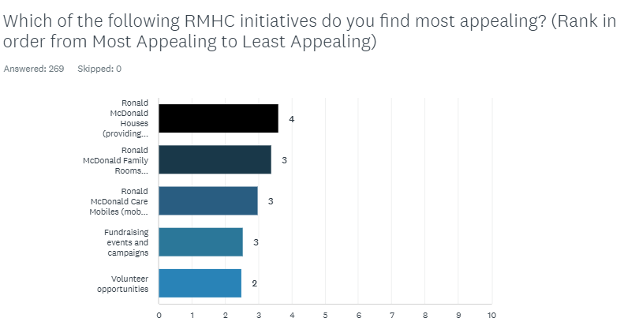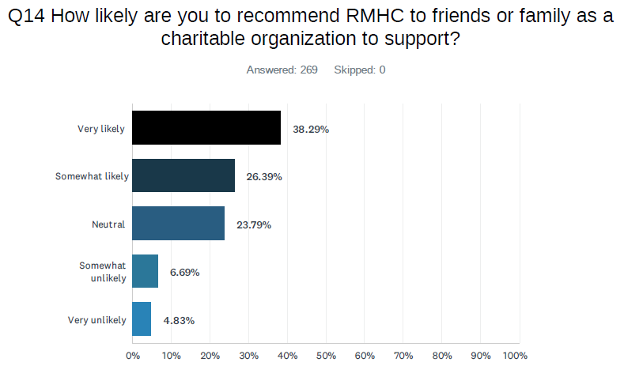About this Case Study
This case study provides an example for non-profit organizations seeking to refine their brand strategy and strengthen donor relationships. If you are in the non-profit sector with a focus on donor engagement or brand management, this case study is for you.
This case study focused on understanding potential donors’ attitudes and awareness of Ronald McDonald House Charities (RMHC), their peer organizations, and perceptions of their specific programs. Through targeted research, we provided insights to enhance RMHC’s donor engagement and program awareness strategies.
Summary
Ronald McDonald House Charities partnered with RKD to gain a deeper understanding of donor motivations and perceptions. The study explored brand awareness, attitudes toward RMHC programs, and donors’ likelihood of supporting the organization. These insights were intended to help RMHC refine its outreach and strengthen its position among peer organizations.
Here’s the Challenge
RMHC needed to address donor awareness and differentiate its programs from those of peer organizations. Additionally, they sought to understand how their programs and initiatives resonated with potential supporters to refine their messaging and engagement efforts.
Here’s the Idea
We designed a comprehensive survey to evaluate donor attitudes and awareness. The survey aimed to uncover:
- Donor familiarity with RMHC and similar organizations.
- Motivations and barriers to supporting RMHC.
- Perceptions of specific RMHC initiatives, such as Ronald McDonald Houses and Family Rooms.
- Communication preferences for staying informed about RMHC’s impact.
Here’s the Execution
A quantitative survey was conducted with 269 respondents, focusing on individuals with a demonstrated interest in charitable giving. Key elements of the survey included:
- Rating familiarity with RMHC and its programs.
- Ranking RMHC initiatives based on appeal.
- Exploring donor motivations, such as transparency and program impact.
- Collecting feedback on preferred engagement channels, such as email newsletters and social media.
Respondents were screened to ensure relevance to RMHC’s target audience, focusing on donors actively supporting family-centered causes.


Here’s the Positive Outcome
Two key findings emerged:
- Program Appeal: The “Ronald McDonald Houses” initiative resonated most with 39.78% of respondents, highlighting its significance as RMHC’s flagship program.
- Familiarity and Likelihood to Recommend:92% of respondents were “very familiar” with RMHC, and 38.29% stated they were “very likely” to recommend the organization to others.
These insights underscored RMHC’s strong foundation while identifying areas for greater visibility and engagement.
Applications to Business Objectives
The findings equip RMHC to:
- Prioritize messaging around their most impactful programs, such as Ronald McDonald Houses.
- Enhance outreach efforts through preferred communication channels like social media and email.
- Address barriers to engagement by emphasizing transparency and sharing personal success stories to build deeper connections with potential donors.